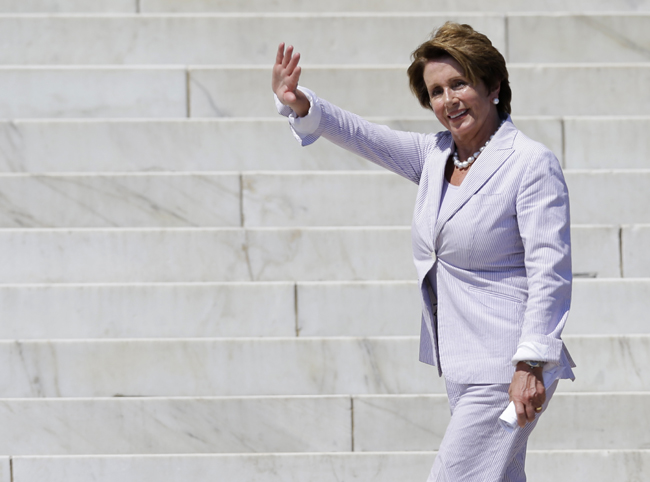In a visit to Austin on Monday, House Democratic Leader Nancy Pelosi discussed her economic agenda for women, emphasizing equal pay, paid medical leave and affordable child care.
The discussion was sponsored by the American Association of University Women and scheduled on Women’s Equality Day. Women’s Equality Day recognizes the ratification of the 19th amendment which occurred 93 years ago, said Jeannie Best, American Association of University Women’s Texas branch president.
Pelosi said she visited Austin Community College’s Eastview Campus because community colleges present opportunities for women by appreciating the balance between work, school and home.
“I want to tell you about our true victory gardens,” Pelosi said. “Those are these young people or people re-entering the educational arena. Some of them have families; some of them are working … It’s all different kinds of things that come to bear at a community college.”
Pelosi said she supports strong public institutions because education is essential to reducing the deficit and raising the gross domestic product produced by women in the United States. Although President John Kennedy signed the Equal Pay Act 50 years ago, pay discrimination is still a pressing issue for American women, Pelosi said.
“We know that pay discrimination is wrong, and it hurts America’s women, families and economy as a whole,” said Dianne Morphew, from the American Association of University Women’s Abilene branch.
Morphew said she has experienced pay discrimination twice, once in 1989 and once in 2002. At one point, a man whom she had trained for the job was going to replace her and earn 150 percent more than she had earned, Morphew said.
“We need stronger laws, we need stronger enforcement and we need more people to come forward with their stories,” Morphew said.
The most costly part of Pelosi’s plan is subsidies for child care, she said.
Pelosi, who has five children, said seeing the lack of paid sick-leave prevent women from taking time off work to care for their sick children is part of what motivated her to work in politics.
“The missing link in all of that has been affordable child care,” Pelosi said.
Pelosi said she also wants to reduce the role of money in politics and increase the role of civility.
“Money suffocates the air out of the system, and if you use money to confuse the debate … people walk away,” Pelosi said.
One of Pelosi’s priorities, raising the minimum wage to a living wage, will mostly affect the private sector, not the government, Pelosi said.
“We just do not want women to be well-paid employees,” Pelosi said. “We want women to be entrepreneurial, to be employers.”















